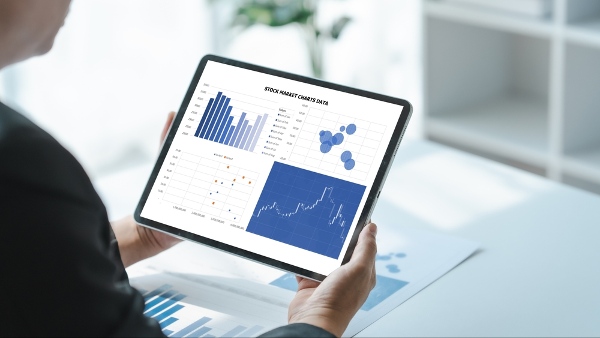
Did you know that small businesses using business intelligence (BI) are 2.3 times more likely to outperform their competitors? That’s right – BI isn’t just for corporate giants. A study by SMB Group reveals this surprising statistic, highlighting the untapped potential of data-driven decision-making for smaller enterprises. But how can resource-constrained small businesses harness the power of BI? Let’s explore five real-life examples that showcase the transformative impact of BI on small business growth.
Retail Revolution: Sara’s Boutique
Sara, owner of a small clothing boutique, faced fierce competition from online retailers. She turned to a simple BI tool to analyze her sales data and customer preferences. The results? A 30% increase in sales within six months.
How did she do it?
- Identified top-selling items and optimized inventory
- Personalized marketing campaigns based on customer purchase history
- Adjusted store layout to showcase popular products effectively
Sara’s success story proves that even basic BI implementation can yield significant results for small retailers.
Service Sector Surge: Pete’s Plumbing
Pete ran a small plumbing business but struggled with inefficient scheduling and resource allocation. By implementing a BI-driven dispatch system, he transformed his operations.
Key improvements:
- Reduced response time by 40% through optimized route planning
- Increased job completion rate by 25% with better resource allocation
- Boosted customer satisfaction scores from 3.5 to 4.8 out of 5
Pete’s experience shows how BI can streamline operations in service-based small businesses.
E-commerce Edge: Maria’s Handmade Soaps
Maria’s online soap business was drowning in data from various platforms. She integrated a BI dashboard to consolidate and visualize her data streams.
The outcome?
- Identified underperforming products and optimized her product line
- Tailored marketing spend based on channel performance analytics
- Improved inventory management, reducing stockouts by 60%
Maria’s story illustrates how BI can help small e-commerce businesses make sense of complex data ecosystems.
Restaurant Resurgence: Tom’s Taco Truck
Tom’s food truck business was hit hard by the pandemic. He leveraged BI to adapt and thrive in the new normal.
How BI helped:
- Analyzed foot traffic patterns to optimize truck locations
- Tailored menu offerings based on ingredient availability and profit margins
- Implemented a data-driven loyalty program, increasing repeat customers by 40%
Tom’s resilience showcases how BI can help small businesses pivot and succeed in challenging times.
Manufacturing Marvel: Lisa’s Custom Furniture
Lisa’s small furniture workshop struggled with production inefficiencies. She implemented a BI system to track and optimize her manufacturing process.
The results were impressive:
- Reduced material waste by 25% through better inventory tracking
- Improved production schedules, increasing output by 35%
- Identified bottlenecks, leading to a 20% reduction in production time
Lisa’s experience demonstrates how BI can revolutionize small-scale manufacturing operations.
These five examples prove that BI isn’t just for big corporations with deep pockets. Small businesses across various sectors can leverage BI to drive growth, even with limited resources. The key is to start small, focus on specific pain points, and gradually expand your BI initiatives.
Ready to embark on your BI journey? Here are some tips to get started:
- Identify your most pressing business challenges
- Choose a user-friendly BI tool that fits your budget
- Start with one or two key metrics to track
- Regularly review and act on the insights you gain
- Gradually expand your BI usage as you see results
Remember, the goal of BI is to make better, data-driven decisions. It’s not about fancy charts or complex algorithms – it’s about using data to grow your business smartly.
FAQ
Not anymore. Many affordable, even free, BI tools are available for small businesses. Start with basic options and scale up as needed.
While data expertise is valuable, many modern BI tools are designed for non-technical users. You can start with user-friendly platforms and learn as you go.
It varies, but many small businesses see tangible improvements within 3-6 months of consistent BI usage.
Absolutely! Even small datasets can yield valuable insights. Start with the data you have and expand your collection as you grow.
Yes, businesses in virtually every sector can benefit from BI. The key is to tailor your BI approach to your specific business needs and goals.


